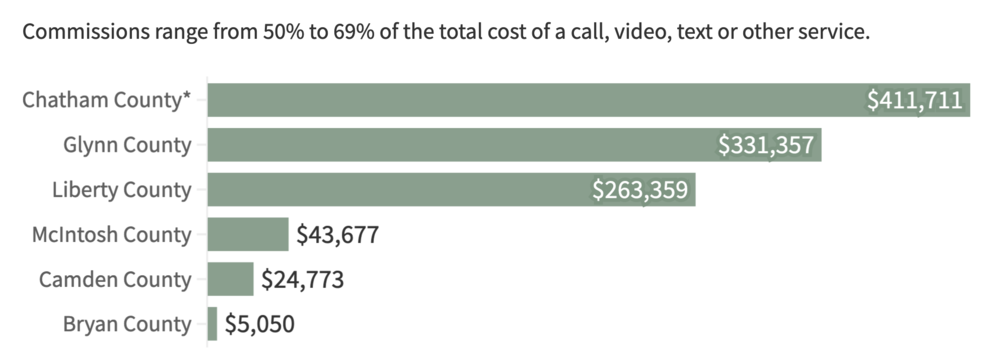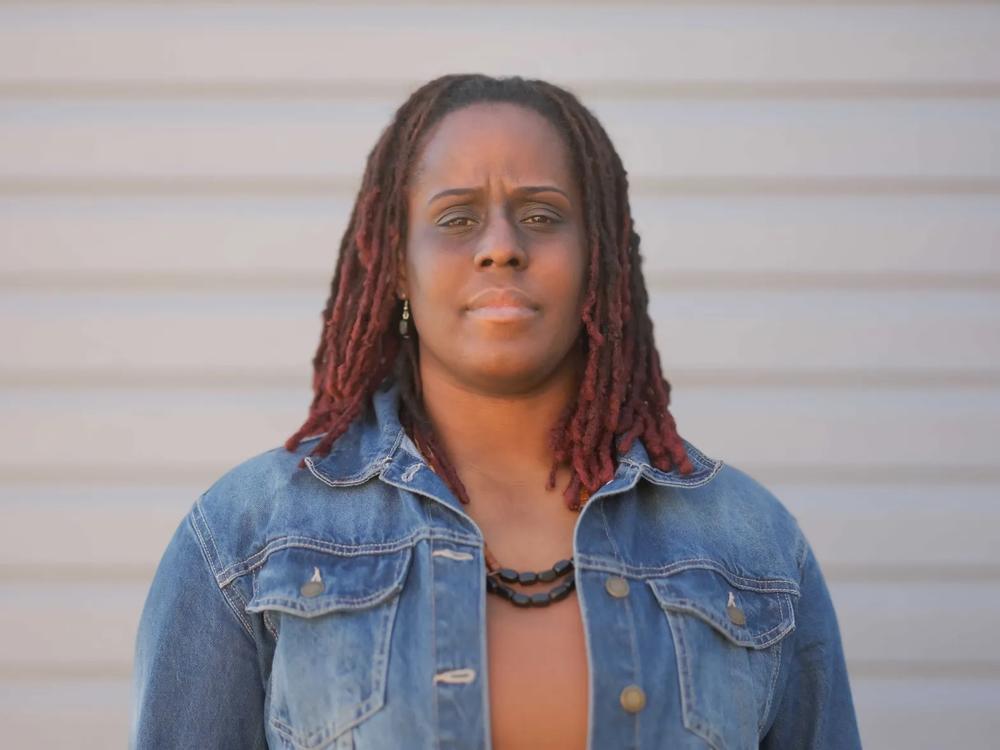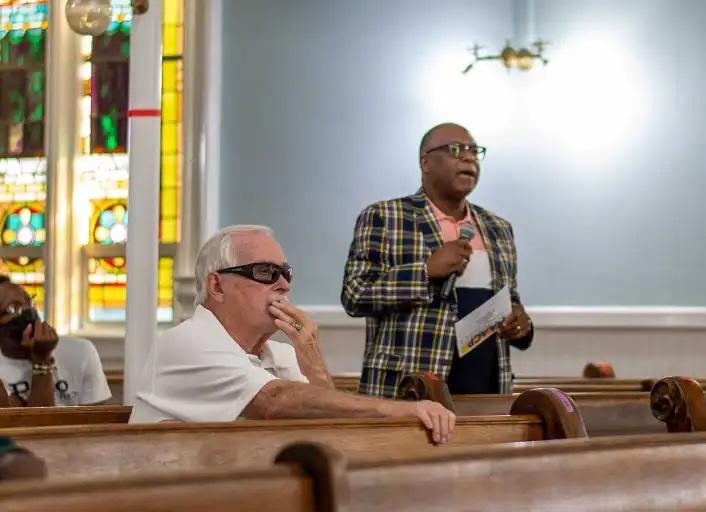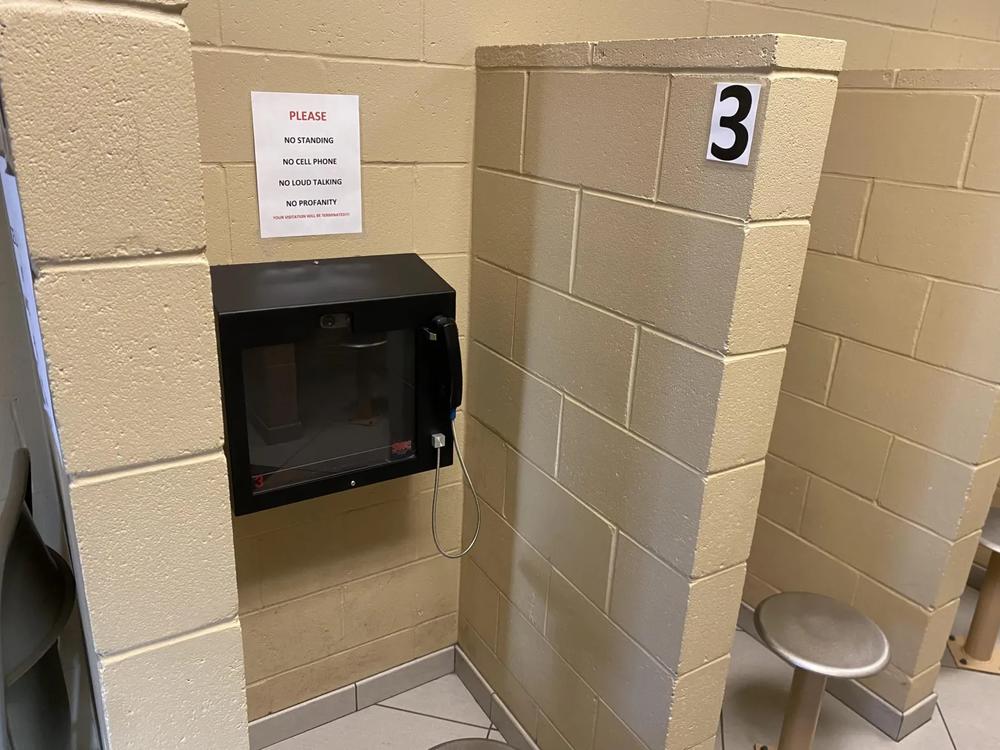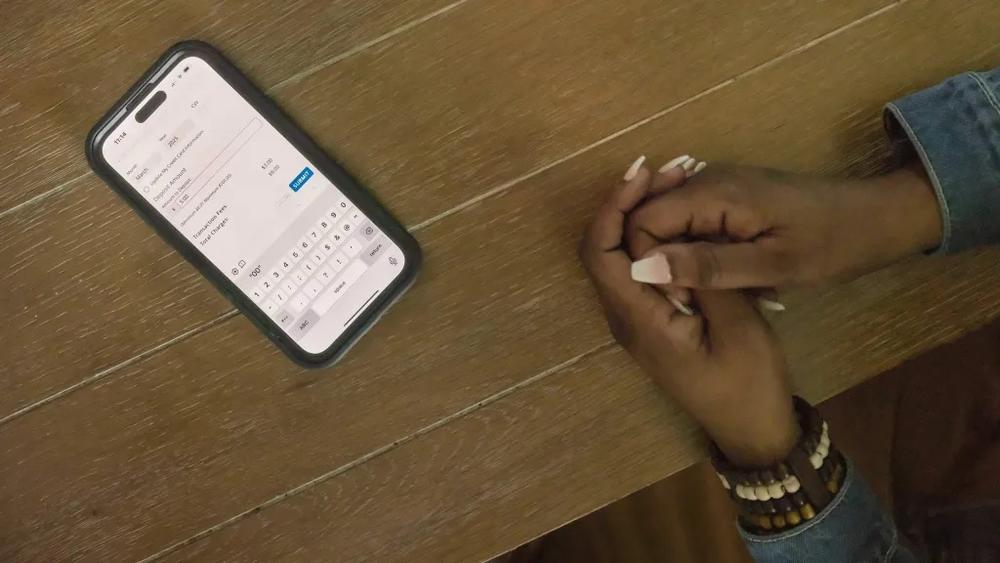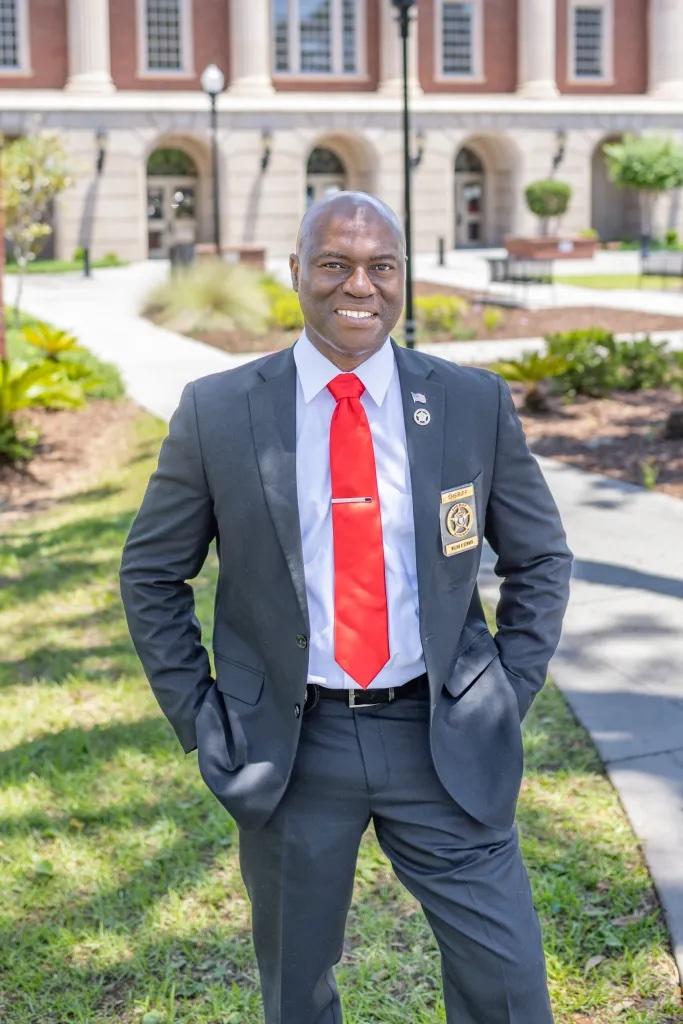
Caption
S'hantel Butler, an Army veteran living in Hinesville and mental health counselor, said she has spent thousands of dollars talking with a loved one in a Georgia state prison where communications provider Securus charges $3 per deposit and 14 cents per minute to talk by phone. "They want to drain money from us, too."
Credit: Justin Taylor / The Current
